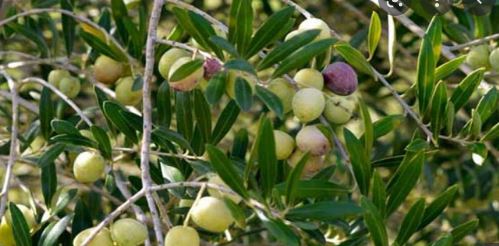ISLAMABAD, JUN 19 (DNA) — Ambassador of Italy to Pakistan Andreas Ferrarese on Sunday said that Italy was playing vital role in promoting ’Olive Culture’ in Pakistan for improving olive value.
Talking to a state media, he said there was full potential of olives in Pakistan in which Italy has been playing its role for the betterment and promotion of olive culture in Pakistan.
He said that Italy would cooperate with Pakistan worth €1.5 million for the promotion of olive culture in Pakistan. He said that olive culture means olive supply value chain and procession, without which development in this sector would not be easy in Pakistan.
Replying to a question, he said that “Olive Culture” project worth €1.5 million shall be executed in 26 months in suitable areas by CIHEAM Bari in cooperation with the Ministry of National Food Security and Research (MNFS&R) through the Pakistan Oilseed Department.
He said that it represents a continuum with all the work done by Italy in the past, with a holistic approach encompassing all stages and stakeholders.
Ambassador Andreas said that Pakistan had a lot of potential for olive production and the country could earn foreign exchange by increasing olive production and using it for commercial purposes.
He said that Italian olives were the best in the world in terms of quality. Pakistan could import olives from Italy. Olives, he said, were an integral part of the entire Mediterranean civilization without which life and culture would be incomplete.
The Ambassador said that Italy had always supported Pakistan’s journey in the field and “We are happy to continue with an aim to develop a sustainable, modern and rich olive culture in Pakistan.”
He said that it would not only provide quality edible oil for the Pakistani people but also help reduce the import bill of the country. Rather, he said, “We look forward to the times when Pakistan would be among leading olive-producing and exporting countries in the world”.
While talking to media, Project Coordinator, CIHEAM Bari International Olive Culture, Marco Marchetti said that there was a need to work more on the olive supply chain in Pakistan, the lack of which at present could not reap the benefits in Pakistan.
He said that consumption of edible oil in Pakistan is 4.5 million tons for which the market needs to introduce the best olive oil for human health. Marco Marchetti said that for the promotion of olive oil culture in Pakistan, there was a need to introduce the technology, including awareness to the farmers.
He said that there was a need to reduce the cost of production in the olive supply value chain with the acquisition of technology, by improving the cost of production, local farmers can be given opportunities to sell olive oil in the market at a good price.
“Olive culture has been around for thousands of years in Italy, where we have been associated with Mediterranean civilization, where olives have been cultivated for thousands of years,” he said.
He said that organizations and institutions related to local agriculture in Pakistan should pay special attention to the promotion of olives.
He said that qualified human resources, technical assistance, quality and safety standards, reference laboratories for oil certification, and phytosanitary labs were much needed in Pakistan to establish a full value chain of safe and highly nutritious tasty food that improved health dramatically.
He said that olive contributed to mitigating climate change impact as a smart tree against soil erosion and water consumption, inducing a low carbon footprint.
These were added value benefits for achieving the desired results in the sector in Pakistan, a country which had the potential to be a world leader in olive production, he said.
He said that Italian technical assistance for Pakistan in the olive growing sector started 40 years ago with adaptive research schemes to assess the viability for modern cultivation of the crop in Pakistan (in the 80s and 90s).
It was followed by the launch of the first significant olive crop investment (2012-2015) through the Pakistan Italian Debt Swap Agreement (PIDSA), resulting in 2000 hectares of plantation in marginal and wastelands, he said.
He said that in 2016, olive cultivation was introduced in the Programme for Poverty Reduction sponsored by the Italian government and executed by the Pakistan Poverty Alleviation Fund (PPAF), through which three oil extraction units were being established on a public-private partnership basis with the farmer communities.
Recently, in March 2022, a key project “Olive Culture Holistic and Multi-Professional Mechanism for a Pakistani Olive Oil Value Chain”, has been launched. =DNA

















